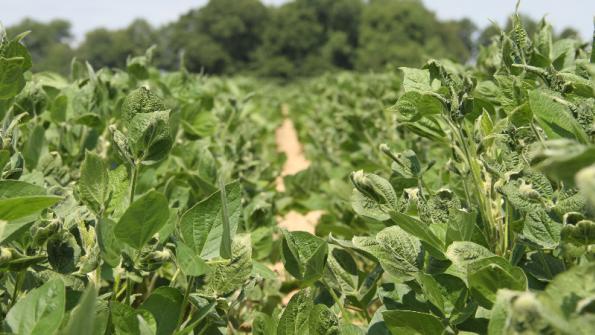
On Monday afternoon (Nov. 21), the full Arkansas Plant Board voted to further restrict the use of dicamba in 2017. The restrictions, proposed by the entity’s Pesticide Committee, passed on a 12-0 vote with two members recusing.
“We expected the full board to follow the Pesticide Committee’s recommendations,” says Bob Scott, University of Arkansas weed scientist. “That’s what they did. Of course, that came after the extremely emotional testimony of the Wallace family (see accompanying story). That was hard to hear but I’m glad they came and said their piece.”
Wallace, who farmed near the Missouri border, was shot and killed by Allan Curtis Jones following an alleged argument over dicamba drift. Jones has been charged with first-degree murder.
Scott was also “pleased the comments were so supportive of the board and of the university. That was reassuring and appreciated.”
The board’s move comes after an often turbulent growing season when producers with Xtend soybeans illegally applied dicamba over-the-top. This led to off-target drift issues that damaged a multitude of susceptible Mid-South crops.
The matter is now in the governor’s hands.
The new regulations would:
Ban dicamba DMA salt and acid formulations. An exception to this would be use of the formulations on pastureland that is at least one mile from susceptible crops.
DGA salt and sodium salt would be prohibited from use from April 15 through September 15. An exception for applications would be for pastures at least one mile from susceptible crops.
Those using BASF’s Engenia herbicide on dicamba-tolerant soybeans and cotton must abide by a quarter-mile downwind buffer and a 100-foot buffer for other directions.
Anyone using DGA-based herbicides on dicamba-tolerant crops must be trained and certified by the state.
Currently, Engenia is still waiting for a label from the EPA. “Unless Engenia is labeled, there will be no in-season use of dicamba,” says Scott. “That April 15 cut-off is being absorbed by farmers today.
“From the calls I’ve gotten, folks are evaluating, or reevaluating, how they’re going to approach 2017. Whatever happens we can’t have a repeat of 2016 with growers going off-label.”
About the Author(s)
You May Also Like




